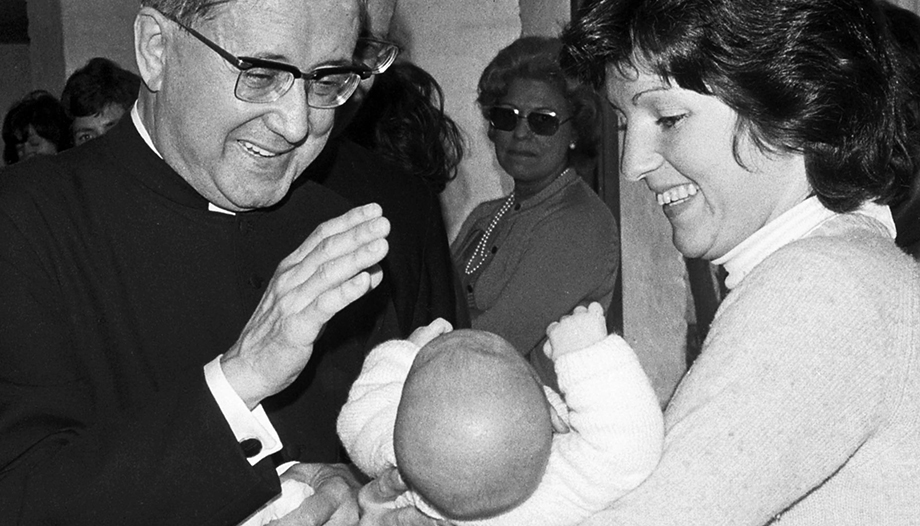 Celebrating "Amoris laetitia" to rethink the family
Celebrating "Amoris laetitia" to rethink the family The "Amoris Laetitia Family" year begins, in the wake of Dublin
The "Amoris Laetitia Family" year begins, in the wake of Dublin "It is the year to revalue the beauty of marriage and the Christian family."
"It is the year to revalue the beauty of marriage and the Christian family."In the case of St. Josemaría, this spiritual doctrine on marriage and the family is of enormous depth and richness and very innovative in several concrete aspects, whether in the conception of the vocational nature of marriage, or in the presentation of family realities as a matter of sanctification, among others.
An immediate consequence is, therefore, the relevance of St. Josemaría's theological and spiritual thought for the pastoral care of family life. It is not in vain that the importance of this area in the teachings of this saint is intimately related to the core of St. Josemaría's spiritual message and his ecclesial mission.
Since the founding of the Opus Dei his preaching consisted in spreading the universal call to holiness. The sanctification of temporal realities stands out as the core of his message and includes, in a central way, marriage and family life, which is why St. John Paul II called St. Josemaría the saint of the ordinary.
In fact, St. Josemaría did not set out to write theology in the academic sense of the word, but the message he transmits has a great theological impact. His preaching of sanctification in the midst of the world implies the simultaneity of various specific aspects of the Christian life.
We can highlight his teaching on the contemplative life, the sanctification of professional work, the deep sense of divine filiation, unity of life, secularity, personal freedom, love for the Church and the Roman Pontiff, living love for Christ and Holy Mary, love for the Cross and the spirit of mortification, joy and, of course, the consideration of marriage as a divine vocation and the sanctification of family life.
The novelty of his thinking on marriage
On this last point, it is necessary to take into account certain aspects that influence both the development and the diffusion of St. Josemaría's teachings on the subject. family and marriage. In the first place, St. Josemaría began his preaching almost a century ago, in a historical and fundamentally theological context different from our own. Of particular relevance is the magisterial teaching contemporary to St. Josemaría, especially the most significant teaching of the Second Vatican Council, which has been developed up to the present day.
Thanks to the analysis of the critical editions of part of St. Josemaría's publications, and other studies, we can affirm that from the beginning of his pastoral work he preached marriage as a vocation to sanctity. In this sense, it is understood that each person has a personal vocation to achieve this end.
Vocation is the foundation and illumination of the Christian life. When we accept the demands that each vocation brings with it, we experience the light, joy and strength that derive from it.
St. Josemaría stood out in his time with a daring way of approaching marriage and family life as a full path to holiness. He emphasized the goodness of marriage and the fact that by its elevation to a sacrament it is also something holy. The Christian spiritual life grows and unfolds in a sacramental context. Marriage grants the grace to sanctify this state of life. It is an authentic path to holiness because God gives the necessary graces through the vocation of marriage.
Following this logic, marriage is good because it has a divine origin. The theological foundation of St. Josemaría's teaching on the sanctity proper to married life lies in the mystery of the Incarnation of the Word and the incorporation of the baptized into Christ through baptism. St. Josemaría contributes to illuminating the truth of Christian marriage. He understood and preached that the whole fabric of human realities is interwoven with the supernatural life and its development.
Ordinary life thus becomes the place and means of sanctification. This message of sanctification in and from earthly realities is presented as providentially current in the spiritual situation of our time, ready to exalt human values, but also often characterized by a vision of the world separated from God.
Priest.











